In the competitive construction industry, it has become a common practice for specialty contractors that desire to avoid employee and payroll-related overhead to utilize “1099 workers” to reduce financial obligations and deliver the lowest bids to win work. However, often this strategy leads to the misclassification of the workers that drive company operations and production.
Mark Erlich, a Harvard Fellow, writes that the misclassification of workers and the related ramifications “add to the inherently insecure nature of the trades.” This insecurity is a barrier to entry for talent in the trades. Add to that the aging workforce leaving the industry like a silver tsunami and the estimated 350,000 new workers the industry requires in 2024 leaves the construction craft workforce unsustainable.
The construction industry must embrace change to ensure operational excellence, productivity, and a sustainable workforce.
Pivoting to a Sustainable Workforce?
The misclassification of workers realistically may help companies to save costs. However, this practice can be the omen of financial, ethical, and legal ruin.
Financial Impact
The federal tax authority levies significant penalties for misclassification, including:
- A $50 fine for each W-2 form the employer did not file for the relevant employees
- A penalty of 1.5% of the employee’s wages
- 40% of the FICA taxes that were not withheld from the employee as well as 100% of the matching FICA taxes the employer was supposed to pay
Ethical Consequences
The costliest penalty may not be financial or legal; however, it has the most significant and long-lasting impact. The misclassification of workers can devastate the reputation of construction companies and jeopardize their ability to secure future business deals. Credible project owners view companies with a misclassified workforce as:
- Less valuable
- Less stable
- Less attractive
Shifting for Forward Momentum
Construction companies that employ the W2 sustainable workforce can avoid these consequences by shifting their talent management and experiencing greater project control, increased employee loyalty, and the impact of employees who support the mission.
Increased Control
The schedule, work that is performed, and the operational process are all controlled by the company. If we want things to be done with a standard of excellence, employees give us that control.
Increased Loyalty
Employees are more loyal when there is a sense of financial security and a long-term investment from the employer that includes both consistent work and training for increased responsibility.
Increased Support
Employees possess the tribal knowledge that makes a company unique. Leveraging their support to pass down crucial skills to new employees and allowing them to showcase how they can deliver upon a multitude of responsibilities supports the employee and company equally.
EMERGE as a Quality Contractor!C3 is dedicated to aiding companies that may be navigating the operational pivot to building a more sustainable workforce. Helping small contractors, previous C3 Project Participants, and the Greater Houston-area M/WBE trade partners is our mission.
C3 has launched a new program called EMERGE.
This program welcomes companies to partner with the C3 team, utilize our team members, and tap into our career pathways consulting capabilities and training courses to add value to EMERGE participating companies.
This process makes it possible to pivot from “1099 Workers” to a sustainable workforce. We’ll help Project Participants smoothly transition to becoming Accredited Employers. Companies in the EMERGE program can expect a seamless process:
- Enroll with a quick 30-minute Zoom Call with the EMERGE Program Manager.
- Learn the dynamic between talent management and business results by completing the C3 Driving Business Results through Talent Management Course.
- Understand how to create and implement a training program that has courses tied to career pathways for all craft professionals by completion of the C3 Craft Training Endorsement process.
- Participate in the active recruitment of new talent into the industry from underserved populations through hiring events.
Scheduling an enrollment call is the first step to optimizing the performance of your workforce and company. Take the first step today to help create a sustainable future for everyone.

